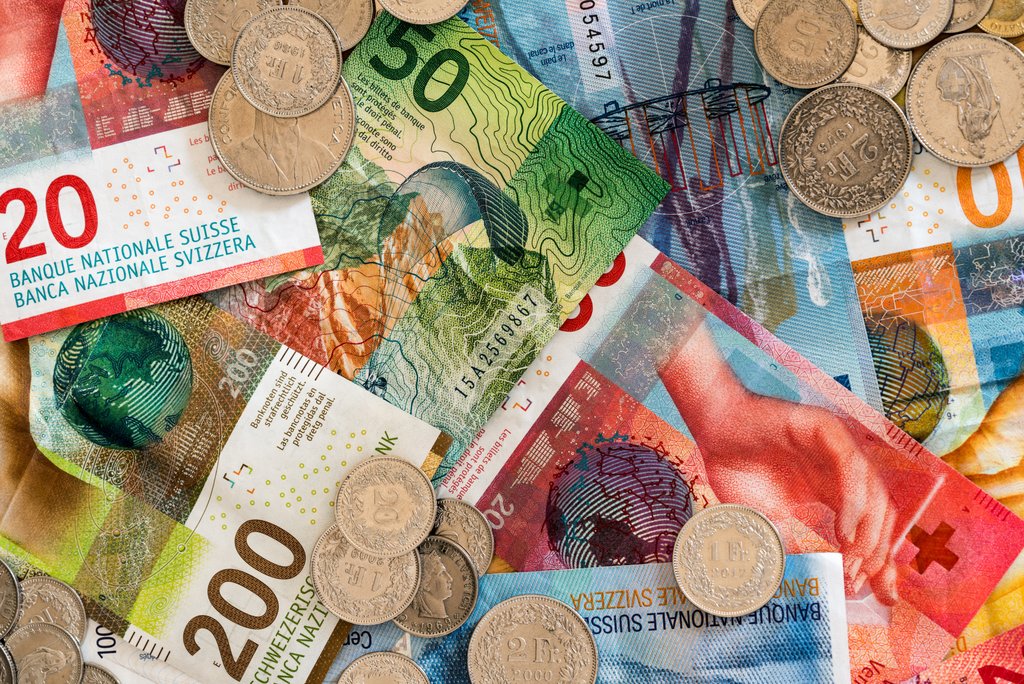Research - 25.01.2024 - 07:50
Study examines the cost efficiency of payment methods in Switzerland
The overall economic costs of on-site payments in Switzerland are considerable, according to a study by the Centre for Financial Services Innovation at the University of St.Gallen (HSG). According to the analysis, cash payments generate the highest costs for society, followed by credit cards and debit cards.

According to the analysis of FSI-HSG, cash payments generate the highest costs for society, followed by credit cards and debit cards.
The total economic costs of on-the-spot payments in Switzerland with cash and credit and debit cards amounted to around CHF 7.3 billion in 2022. This corresponds to 0.95 per cent of Switzerland's gross domestic product (GDP). At CHF 5.2 billion, cash payments generate the highest overall economic costs, followed by credit cards (CHF 1.1 billion) and debit cards (CHF 1.0 billion).
Significance of private and resource costs
"A central element of the evaluation is the distinction between the private and resource costs of the payment methods," explains Dr Tobias Trütsch, head of the study and managing director of the Center for Financial Services Innovation at HSG. The private costs represent the total costs borne by an individual stakeholder, such as merchants, financial institutions or consumers. Resource costs, on the other hand, reflect expenses in the form of internal processes. They result from the private costs minus the fee transfers between the analysed stakeholders. Resource costs include time costs for payment, withdrawing and counting cash as well as capital and technology costs. They are crucial for assessing the cost efficiency of payment methods from a macroeconomic perspective.
Costs of payment methods are unevenly distributed among stakeholders
The costs of payment methods vary greatly depending on the stakeholder. At 0.60 per cent of GDP, the retail sector bears the largest share of private costs due to transaction fees, while the financial sector bears the largest share of resource costs at 0.53 per cent of GDP. This is followed by consumers with costs of 0.35 per cent (private costs) and 0.1 per cent (resource costs). The costs for the Swiss National Bank (SNB) are minimal at around 0.03 per cent of GDP.
Debit card payments are the cheapest
On average, debit card payments are the cheapest option, both in terms of resource costs per transaction (CHF 0.70) and in terms of the percentage share of resource costs in turnover (1.6%). Cash payments, on the other hand, generate the highest resource costs per transaction (CHF 3.72) and as a percentage of sales (14.6%). Credit card payments have average resource costs of CHF 3.21 per transaction and a percentage share of 5.2% of turnover.
If the underlying payment infrastructure is already in place, the study shows that cash is the most expensive means of payment regardless of the transaction value, followed by credit and debit cards. For example, a cash payment of CHF 20 costs the company CHF 2.10, while credit and debit card payments incur costs of CHF 0.80 and CHF 0.50 respectively.
Comprehensive analysis through detailed data collection
The study is based on extensive data collected through detailed surveys of financial institutions, infrastructure providers and merchants in Switzerland. In addition, time measurements of payments at Swiss points of sale were carried out for the first time. The results are comparable with other international studies. For the first time, the study provides comprehensive information for increasing the overall economic efficiency of Swiss payment transactions.
Image: Adobe Stock / makasana photo
More articles from the same category
Discover our special topics











